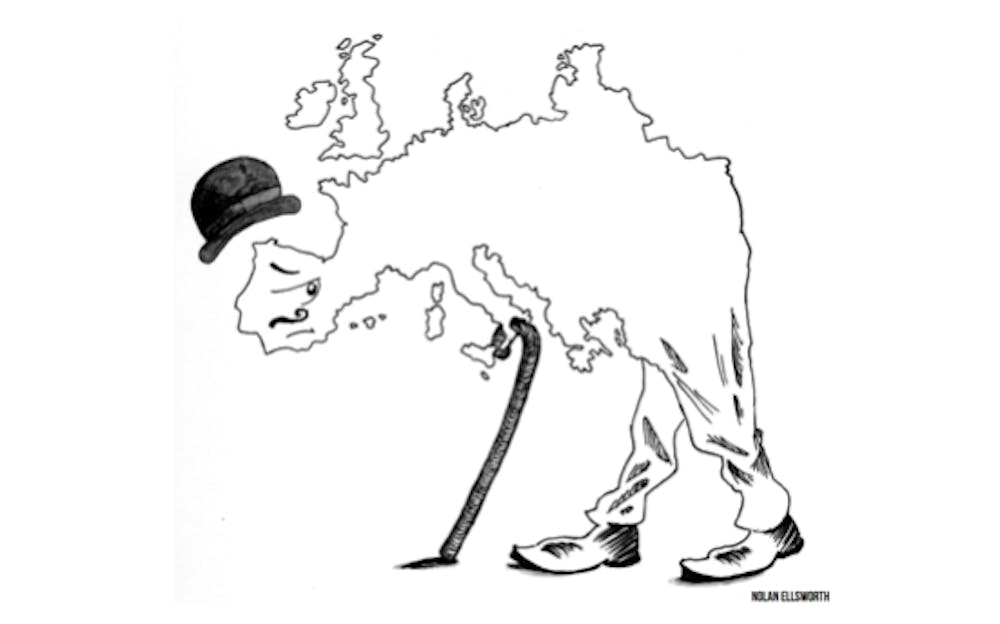I did not plan to write for the Campus this semester. I am studying abroad and had hoped to spare the Middlebury community my whining and myself the dangerously inflated ego that being published in the Campus might cause. And, frankly, I was looking to get away. Alas, many things are easier said than done. Ideally, someone better read than I would construct the argument I present below. Due to the apparent absence of such a voice in this debate, I feel compelled to add my own.
During the last semester, the SGA began to consider the issue of distribution requirements. As a dutiful cabinet member whose position had little connection to academic matters, I decided it was best to keep my opinions private. Now, however, I can be more candid. While it is important that we discuss and debate the value and nature of our education, I believe that efforts to remove the Europe (EUR) requirement are misguided. Studying Europe — its history, culture, literature, languages — is essential to a liberal education. Contrary to what proponents of reform argue, European thought is, particularly with regards to our education, more important than that of other parts of the world.
I suspect that last sentence is controversial. It shouldn’t be. This is not a matter of pro-Western jingoism. Liberal education is a European invention. It is the product of centuries of thought which, aside from a crucial period in the middle ages in which Islamic scholars translated, interpreted, and resuscitated the likes of Aristotle and Plato, is uniquely Western. This is not to say that only Europeans can be liberally educated. The value of a Western education is that it is universal. Rational inquiry is not the domain of Europeans alone. The rational study of human nature transcends class, race and sex, even as it gives insight into all of those subjects. Sciences and humanities as we conceive of them today are the products of a European tradition. It is no coincidence that Nietzsche, Marx, and Freud — perhaps the greatest critics of Western thought — studied Aristotle and Plato, Hobbes and Locke, Homer and Virgil. More recent critics such as Richard Rorty and Foucault did likewise. If one seeks to criticize the West, one should study it first.
As Requirement Reformers correctly argue, education has moral implications. What we study affects how we think. Most education systems teach their students what to think. They seek to impose a belief system on their students. Liberal (Western) education takes a different approach. Its goal is more ambitious and more just. At the end of a successful liberal education, one is not expected to hold any particular belief, but rather to be able to think for oneself. The study of Europe is not merely the study of a certain ethnicity or language, but rather a necessary part of an attempt to free one’s mind.
Critics of Western education often point out all the bad things for which Europeans are responsible. Yet they attribute these sins not to the flawed human condition, but rather to the much derided “dead white males.” Thus, one rarely hears complaints about the Ottomans and no one seems to mind that Jordanians occupied the West Bank and Egypt controlled the Gaza Strip. Not to mention China’s ongoing oppression of its Uyghur Muslim population or the atrocities the Indian government has committed in Gujarat. Alongside the Western tradition’s very real errors is a debate about the Good. In other words, it is hardly coincidental that we spend so much time criticizing British imperialism while no one in Qatar seriously complains about the slave-like conditions Egyptian and Palestinian workers face in Dubai’s shiny new hotels. Our self-criticism distinguishes us far more than our sinful past and present.
The ridiculousness of an argument over whether to require the study of Europe is that it is itself a Western discourse. If we do not study the history and development of that conversation, how will we ever understand the purpose of a Middlebury education?
HARRY ZIEVE-COHEN '15 is from Brooklyn, N.Y. Artwork by NOLAN ELLSWORTH.




